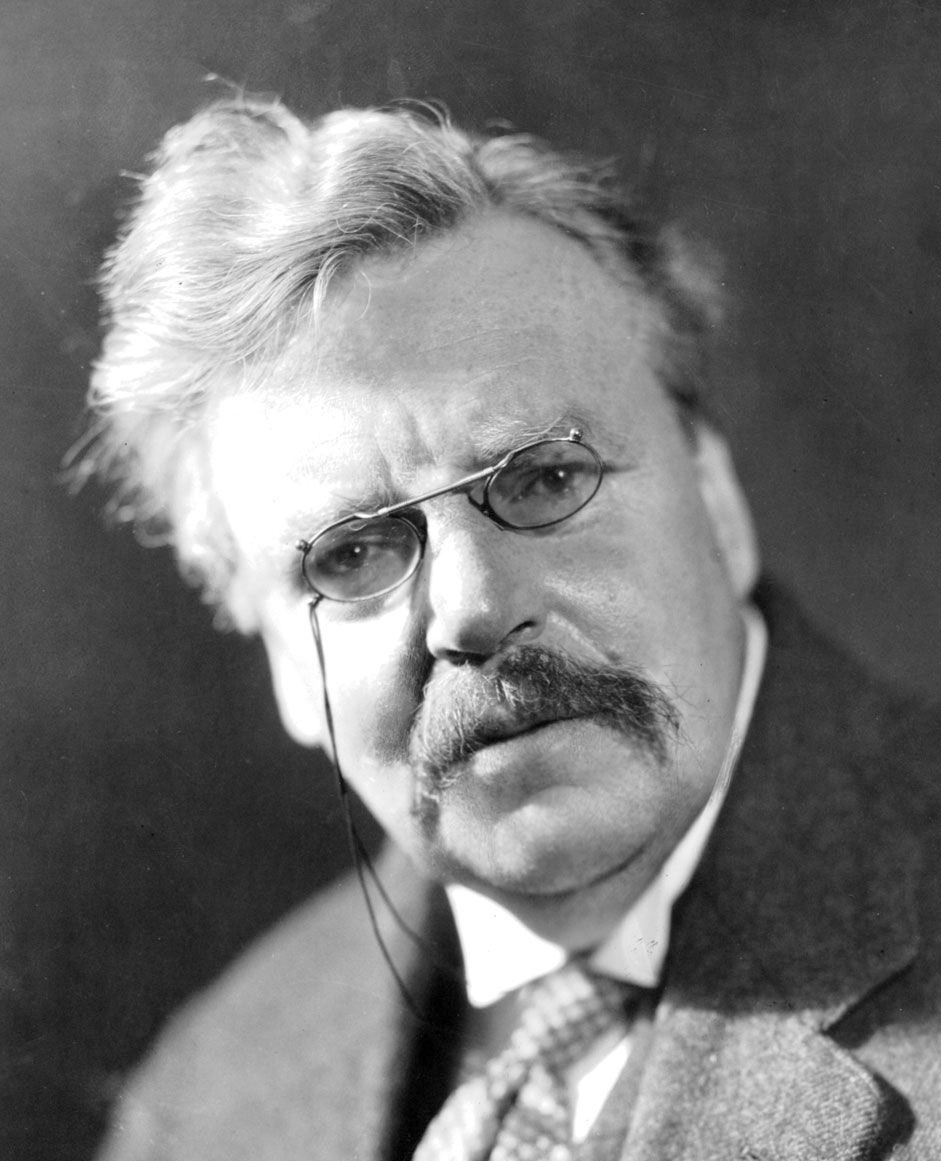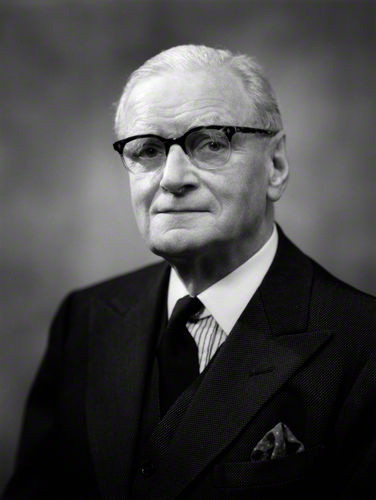
 The final essay in this series will address the question of government. And, of course, more will be left unsaid than said thereby: we’ve not spoken at all about, say, literary criticism , or the interpretation of history, or the nature of modern warfare. But I hope these articles would be confined to my own (admittedly lacking) perception of those debates Conservatives have failed to take up—like psychology—and offer new perspectives on those fields where we’re “losing”—rights, Existential philosophy, etc. In truth, there is still a great resistance on the right in the domains such as literature and history manned by more gifted minds than my own. But one aspect has been a decisive and as-of-yet terminal defeat for the Conservative ideal, the buckling from which has allowed the left to claim a mantle that was once ours. It’s a defect that thinkers and leaders on the “right” have taken up with such vigor as to appear to be an illness all its own. I mean: libertarian economics.
The final essay in this series will address the question of government. And, of course, more will be left unsaid than said thereby: we’ve not spoken at all about, say, literary criticism , or the interpretation of history, or the nature of modern warfare. But I hope these articles would be confined to my own (admittedly lacking) perception of those debates Conservatives have failed to take up—like psychology—and offer new perspectives on those fields where we’re “losing”—rights, Existential philosophy, etc. In truth, there is still a great resistance on the right in the domains such as literature and history manned by more gifted minds than my own. But one aspect has been a decisive and as-of-yet terminal defeat for the Conservative ideal, the buckling from which has allowed the left to claim a mantle that was once ours. It’s a defect that thinkers and leaders on the “right” have taken up with such vigor as to appear to be an illness all its own. I mean: libertarian economics.
Were there a more adequate phrase for this idea I would use it. We might say laissez-faireism, or Austrian economics, or Classical Liberalism, but all of these would be rejected by the thousands upon thousands of pages of polemics produced by these schools. “Libertarian Capitalism” should address the basic assumptions and consequences of the above in general rather than the minute crevices of theory that the huge majority of the public (myself included) have no means of digesting, and yet are meant to fall under the same.
 But first I’d like to say something briefly about economics as a discipline. It’s one of the realities this particular field that we deal with two distinct, irresolute denominations: one is the descriptive end of things, and the other is the prescriptive. Descriptive theories are the horrific mathematical games one plays in university courses like Macroeconomics 101 or Introduction to Statistical Analysis. They’re a game rather like tag. Their underlying mathematical rational have never been proven undeniably correct in any one side’s favour—not the Marxist, or the Keynesian, or the Austrian. None of them. Whenever we see labels like “Neo-Keynesian” or “Post-Marxist”, for instance, we should see an attempt to re-arrange their root theories to work around inescapable flaws discovered through academic discourse or, worse, practice. Should you ever meet an economist who tells you otherwise, sit him down with an economist from a rival school and listen to them debate. Like a game of tag, they’ll inevitably go back and forth until the sun starts to set and they’re called home for supper.
But first I’d like to say something briefly about economics as a discipline. It’s one of the realities this particular field that we deal with two distinct, irresolute denominations: one is the descriptive end of things, and the other is the prescriptive. Descriptive theories are the horrific mathematical games one plays in university courses like Macroeconomics 101 or Introduction to Statistical Analysis. They’re a game rather like tag. Their underlying mathematical rational have never been proven undeniably correct in any one side’s favour—not the Marxist, or the Keynesian, or the Austrian. None of them. Whenever we see labels like “Neo-Keynesian” or “Post-Marxist”, for instance, we should see an attempt to re-arrange their root theories to work around inescapable flaws discovered through academic discourse or, worse, practice. Should you ever meet an economist who tells you otherwise, sit him down with an economist from a rival school and listen to them debate. Like a game of tag, they’ll inevitably go back and forth until the sun starts to set and they’re called home for supper.
Which is why the bulk of economic debate is waged by laymen (that is, non-economists) on moral and philosophical grounds rather than mathematical ones. As we mentioned in the last essay, the Marxist will ultimately rely on arguments of “justice”, “rights”, “nature”, and “history” rather than mathematics. Numbers can be (and are) made to say whatever the ideologue wants. Even the Devil can quote Scripture, as they say, to his own ends. But the person wanting to affect real change in public opinion should recognize one fact of economics: the numbers are bunk. Necessary for the day-to-day, yes, very; but matters of system will inevitably be intellectual ones. So I resign myself to the moral, philosophical side of the debate.
Now, let’s draw this out one step further. As we know from the study of Conservative thinkers such as Burke, Eliot, Kirk, and Scruton, there are certain core beliefs that make one a Conservative. These men defined Conservatism for us, and if there’s to be any way of discussing freely our ideas, we must allow that some people shouldn’t be called Conservatives, even if we should like for them to be. This doesn’t make them unequivocally wrong; it just means they fall outside the parameters of a certain terminology.

Russell Kirk (1918-1994)
Likewise, there are core beliefs that define the Libertarian set of beliefs. These are: that man is naturally inclined to behave rationally and in his own best interests; that only the individual can understand his own needs; and that government coercion hurts rather than helps productivity. We can see how this is like Marxism in their acceptance that man is at heart good, but perverted by external forces that need to be eliminated. On the other hand, Marxism rejects the ownership of private property, so any further similarities begin to crumble.
The Conservative and the Libertarian (and thereby the Marxist) are fiercely at odds on the very first, rather than the latter, principles. As Russell Kirk wrote in his essay “Libertarians: Chirping Sectaries”:
“Libertarians (like anarchists and Marxists) generally believe that human nature is good, though damaged by certain social institutions. Conservatives, on the contrary, hold that “in Adam’s fall we sinned all”: human nature, though compounded of both good and evil, is irremediably flawed; so the perfection of society is impossible, all human beings being imperfect.”
The Conservative does not believe that man is basically rational. We believe that man is “Fallen”—that is, ruled by appetites and fancies. We see that, in the modern world, there are three general types of people:
(i) The malicious and clever, who know a great deal about how, and are willing, to amass great wealth and power at the expense of those who live in fear and poverty;
(ii) The docile and consumptive, who are driven by immediate desires and a general need for comfort, which comprises well over half of the Western public; and
(iii) The wise and benevolent, who are rational and kind, but not willing to gain at another’s expense, and so seldom reach the heights of either wealth or power.
Of course, this is almost uselessly narrow, but in terms of how one consumes and interacts with “markets” it should more or less serve our purposes. Why do we have the archetype of the starving artist, the suffering Saviour, and the wise old hermit? Why the mythical Kings of old, and not President Arthir assembling his cabinet at the Round Table, or going forth to draw the sword from the CEO of the Lake? It’s not only time and place; we cannot, by any stretch of the imagination, conceive that democracy and big business yield whole Goods. We accept instinctually that these endeavors are ignoble at heart. We don’t have any illusions that, in an ideal society, any given man might be an Arthur, and the private sector will raise him up because it would be in their own interests.
 This is where our vocabulary has gone awry. It isn’t because Conservatives want to excuse tyranny, but because we hate it, that we ought to reject laissez-faire economics. Conservatives make no mistake that power and wealth would cease to find their way to the wily and self-serving if we simply burnt the ballot box. We would rather admit that the huge bulk of man is irresponsible and see that he lives out his life happily and prosperously than indulge him in a fantasy that he’s pure of heart and mind, and condemn him to a wholly avoidable despotism.
This is where our vocabulary has gone awry. It isn’t because Conservatives want to excuse tyranny, but because we hate it, that we ought to reject laissez-faire economics. Conservatives make no mistake that power and wealth would cease to find their way to the wily and self-serving if we simply burnt the ballot box. We would rather admit that the huge bulk of man is irresponsible and see that he lives out his life happily and prosperously than indulge him in a fantasy that he’s pure of heart and mind, and condemn him to a wholly avoidable despotism.
Returning to the above discussion of “types”, Conservatism acknowledges that a class of “type (iii)” people raised to be so wise and benevolent were a better alternative to our current scheme—in other words, we prefer the government of an aristocracy checked by popular sentiment than a sentimental, unfettered bourgeois dictatorship such as we now enjoy. Perhaps the aristocratic arrangement wasn’t the best imaginable as it played out then, but it was preferable: the interests of a spiritual and cultural elite trained in just government, versus the interests of unrestricted consumers ruled by those who own the means of mass-production.
But what now that the aristocracy is gone? Conservatives have yet to position ourselves behind a theory that fully realizes the Burkean ideal of autonomy from evil while considering the capacity for one “free” system (say, the free market) to replace the tyranny of another (the “free reign” of monarchs that the Enlightenment revolted against). We’ve swallowed the Libertarian alternative: that the dangers of mindless consumption and the effectual rule by the merchant class is somehow acceptable given the alternatives: supposedly, Marxism and a fabulous but unreal Monarchial despotism. “This is the best we can expect,” we seem to be saying. And yet, if we are Conservatives, and if we do believe that some effort should be made to raise up both independence and true enlightenment—to abolish both carnal and spiritual depravation—we mustn’t just settle for the Capitalist status quo.

Hilaire Belloc (1870-1953)
Distributism is an idea that nearly every Traditionalist has heard of but almost no one seriously considers. And, in many ways, this is understandable. It was formulated by men like Belloc and Chesterton, and supported by folks like Lewis and Tolkien, so it mustn’t be very realistic (whatever that means). It’s drawn from the Catholic Church’s justice teachings, so we can expect it will be rather rigorous and inconvenient. Worst of all, the name—it sounds like some sort of “Socialism Lite”, doesn’t it? I once asked a friend of mine—a Republican, laissez-faireist, and Roman Catholic—if he’d ever heard of Distributism. “Yes,” he said, “but I don’t agree with it. I don’t see how the state distributing everyone’s money and property is much better than Communism.” An honest mistake. (You’d think that would be a very popular idea, wouldn’t you?) But that’s not Distributism.
We might say that Distributism is the principle that property should exist in a society in such a way as to leave each individual and household the masters of their own fate. On a deeper level, Distributism is an attempt to account for the criticisms of both Capitalism and Communism: both the injustices of the concentration of property, and the abolition of property altogether.
As we established in the previous essay, it’s totally unreasonable to stake a society in such an ideal as Natural Rights. Rather, as Traditionalists, we know that rights are earned and preserved by diligence and sacrifice. This is how our forefathers forged a more just and free society, and this is how we will pass the same onto our descendants. We know that, if we fail to do so, there are thousands of radicals who would be happy to hoist the Red Flag over our halls of government.

G. K. Chesterton (1874-1936)
But we should also know that no man ever fought and died for such a thing as a market’s freedom. Once, he fought because a more free market would spare his family hunger and desperation. If, over time, this liberality has secured us a new class of tyrants, the spirit of our laws and the inheritance of their past guardians assert themselves squarely as such a class’s enemies. Or to put it in a different way, at heart a Distributist understands the precedence of “free market” agitation to be a desire for independence from the unstable judgment and fancies of arbitrary rule. When faced with our modern condition, this would naturally extend to the unstable judgements of corporate leaders and the arbitrary rule of market forces. In other words, we support free markets insofar as they make families and individuals free, but no further.
Another imperative to Distributism is that part of a free society is the freedom, to the largest extent possible, to occupy one’s self with a craft, trade, or profession that one finds spiritually fulfilling. As such, the Distributist is forever the enemy of the unproductive moneylenders, bureaucrats, and the draft-armies of white-collar middlemen. We acknowledge the more spiritually rich and intellectually wholesome society built by the farmer and independent tradesman; we say a broad countryside and a small city is, while perhaps not the most conducive to decadence and military power, the environment by which man truly prospers.
 We might also recognize here a certain sanity. The Austrian or the Marxist or whomever might challenge that industrial urbanism is so thoroughly rooted in our civilization as to be totally inoperable. We contest that a nation committed more to smelting, banking, and paper-pushing than to a sustainable, healthy supply of food and shelter is insane. We say doubly that such a society possessed by material desire, which amasses wealth without producing goods, and that resigns itself to total deracination and urban squalor isn’t one worth living in. Of all economic theories, only Distributism continues to value techne. Only Distributism gives moral currency to the skilled craftsman, the local farmer, the town doctor, the poet, the teacher, and the soldier all equally. All men are equal in the eyes of God, and only Distributism seeks to put this whole mandate into practice. Only Distributism demands that moral well-being and human fulfillment be factored into the manifold equations argued by economists. Only Distributism contends that, however accustomed to endless skyscrapers, floods of foreign cars, imported foods, and cheap Asian slave-labour we might be, our convenience can’t wash away their ugliness or depravity.
We might also recognize here a certain sanity. The Austrian or the Marxist or whomever might challenge that industrial urbanism is so thoroughly rooted in our civilization as to be totally inoperable. We contest that a nation committed more to smelting, banking, and paper-pushing than to a sustainable, healthy supply of food and shelter is insane. We say doubly that such a society possessed by material desire, which amasses wealth without producing goods, and that resigns itself to total deracination and urban squalor isn’t one worth living in. Of all economic theories, only Distributism continues to value techne. Only Distributism gives moral currency to the skilled craftsman, the local farmer, the town doctor, the poet, the teacher, and the soldier all equally. All men are equal in the eyes of God, and only Distributism seeks to put this whole mandate into practice. Only Distributism demands that moral well-being and human fulfillment be factored into the manifold equations argued by economists. Only Distributism contends that, however accustomed to endless skyscrapers, floods of foreign cars, imported foods, and cheap Asian slave-labour we might be, our convenience can’t wash away their ugliness or depravity.
The main charge brought up against this idea is that it’s impossible for the State to divest a whole nation of its plump banks or cut the IV of imported goods that sustain our economy. My great confusion is what it’s assumed that this would be an entirely governmental act. As Chesterton wrote in his essay, “What We are Getting At”:
“We think that something can be done through Parliament to make small ownership easier to gain and to hold. But we are not a Party, and our main effort must be always outside Parliament […] The one thing needful is to preach steadily and work steadily for small ownership and the localization of production and consumption, while refusing to consider the irrelevant problem of the big town.”
It was never the Distributist’s aim to effect a top-down change, if only because true spiritual health can’t be imposed, but must be wrought.
But in “practical” terms, we might put it this way. Say this essay is read by every single Australian of voting age, and started to win converts to Distributism. Say that these recruits in turn began to swell the ranks of the Democratic Labour Party, Australia’s only explicitly Distributist party. I would very much doubt that there would be a great need for government action, even if the DLP somehow won a supermajority. It would be much easier and—though this is no guarantee—more to the principle of the thing for this transformation to be brought about overwhelmingly by “direct investment”: individuals choosing to purchase local produce and meats, locally handmade furniture, paying a bit extra for durable and ethical clothing, foregoing the use of automobiles as widely as possible, and disusing banks in the same way (with credit unions tending to be the Distributist’s preferred alternative).
 Next will come the generations gradually opting to learn a trade or own a farm, because such vocations would be made livable and honourable once again. Then will come the resurgence of technical and agrarian secondary schools, not to mention apprenticeships. What will the government have left to do? Perhaps fund those schools, which will already be in demand, and maintain tariffs sufficient to keep the exploitative labour practices of certain other nations from re-flooding the markets. Such a need, once the great moral revolution has taken root, would presumably be unnecessary in the first place. Anyway, it seems much more likely that, if it comes at all, Distributism will be affected by courageous individuals. Like every true progress made by a society, the sacrifices of one generation will yield a better future for their children.
Next will come the generations gradually opting to learn a trade or own a farm, because such vocations would be made livable and honourable once again. Then will come the resurgence of technical and agrarian secondary schools, not to mention apprenticeships. What will the government have left to do? Perhaps fund those schools, which will already be in demand, and maintain tariffs sufficient to keep the exploitative labour practices of certain other nations from re-flooding the markets. Such a need, once the great moral revolution has taken root, would presumably be unnecessary in the first place. Anyway, it seems much more likely that, if it comes at all, Distributism will be affected by courageous individuals. Like every true progress made by a society, the sacrifices of one generation will yield a better future for their children.
I’ve already said that I don’t believe people act rationally on the whole; you might ask how I expect well over half of the public to conscientiously support such a radical change. To use the Marxist’s language, I’m not sure that a momentous shift of the sort is avoidable. We greatly underestimate boredom, which is the final symptom of our creative mind’s starving to death. As often as we hear politicians defend labour outsourcing, no matter how many second-rate minds rush to defend Brutalist architecture, eventually we’ll wake up and be sick that everything is so petty and ugly and unsatisfying. The alternative we choose might be Fascism or Marxism; I hope history has been too strict a mentor for us to take those roads again.
I think, rather, people will be bored not only of our tiresome modernity, but also of fishing for horribly abstract and ingenious solutions. I’d be most inclined to believe that—in our increasingly Absurdist “default”—Western Civilization will heave a collective sigh of exhaustion and say,
“I want my own property, but I don’t want to feel owned by it. I want food that tastes good, and I want it to be fresh and healthy. I don’t want my beef to be stuffed with hormones and left in a box for months before I touch it. I don’t want to make animals suffer so they come at a dollar less per ounce. I don’t want to pay a huge amount of money for t-shirts and jeans when they’ve been sewn in a Chinese sweat-shop, and when I know they’re going to fall apart anyway. I want to be able to make a living actually making something, and I want to be able to support someone looking for the same satisfaction. I want to listen to music that talks about something other than sex and money, and I want to really affect me, not just fill the silence. I want to read books that make me think. I want a yard, maybe even a vegetable garden. I only want a modest house, but one that I’ll be happy to come home to. When I go to the city, I don’t want to choke on smog, go deaf from car horns, and be trampled underfoot by the stampeding crowds. And I want my children to have no idea what it feels like to look around the world and think how cheap and ugly and degrading it all is.”
There are always accusations of romanticizing that come with ideas like these, but one can’t be so sure that romanticism is such a grievous fault. Perhaps we do think there was something lost in the Victorian Era, where men and women thought it only decent to dress respectably for the day-to-day. Maybe there’s something to the longing for a pre-Industrial society where the produce was always fresh and local, when one could walk down the road without cars bumbling alongside, or look up into the night and see the stars.

Henry Howard, Earl of Surrey (1517 – 1547)
We’ve said that man, when he desires an escape from the evils of this world, must seize is opportunity to revolt. Theories and slogans mean nothing without passion and action. Distributism would mean refuge from commercialism in a rubbish, mass-produced culture. But to be freed from this new dictatorship, it must be clear, would be liberation from another evil like it: ugliness. Beauty is increasingly thought to be irrelevant in the modern West. Cost and abundance are valued over quality of aesthetic and functionality. Regardless of what the Post-Keynesians or Paleo-Austrians say, we have every reason to want to encounter beauty in our daily life. Whatever the Frankfurt School says, taste isn’t all subjective. We can’t bottle up our impulse toward the Sublime if our palate rejects the brutalism and formlessness of the Postmodern era. Eventually the revolt against the status quo of hideousness will come. If we keep our wits about us, and our spirits high, this will be the advent of Distributism.
To bring this series to a close on a poetic note, I’ll leave you with a simple verse by Henry Howard, Earl of Surrey—a poem I think summarizes quite well the essence of Traditionalism, which goes beyond all theory and appetite to the best of the human heart. This is what we fight for.
MARTIAL, the things that do attain
The happy life be these, I find:—
The richesse left, not got with pain;
The fruitful ground, the quiet mind;
The equal friend; no grudge, no strife;
No charge of rule, nor governance;
Without disease, the healthful life;
The household of continuance;
The mean diet, no delicate fare;
True wisdom join’d with simpleness;
The night dischargèd of all care,
Where wine the wit may not oppress.
The faithful wife, without debate;
Such sleeps as may beguile the night:
Contented with thine own estate
Ne wish for death, ne fear his might.
– Michael Warren Davis
The author is a native Bostonian currently studying at the University of Sydney. He is an officer of the Australian Monarchist League. His personal blog is “The American High Tory”.






Reblogged this on Manticore Press.